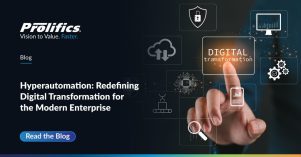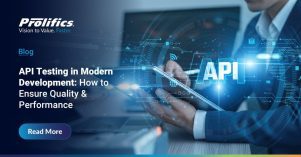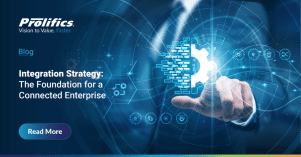The healthcare industry is undergoing a rapid transformation, driven by technologies like artificial intelligence (AI), machine learning in healthcare, Gen AI in healthcare and advanced analytics. Among these innovations, predictive analytics in healthcare has emerged as a game-changer. By analyzing historical and real-time data, predictive models give providers the ability to anticipate future health events, personalize treatments, and deliver data-driven healthcare that results in better outcomes and operational efficiency.
What is Predictive Analytics in Healthcare?
Predictive analytics in healthcare refers to the use of statistical models, machine learning algorithms, and clinical data to uncover patterns that predict patient outcomes. This includes disease progression, treatment response, and hospital readmission risks. Importantly, predictive analytics in healthcare using AI enhances the ability of medical professionals to intervene earlier, reduce complications, and develop personalized medicine with AI that suits an individual’s unique health profile.
The rise of generative AI in healthcare analytics extends predictive power further, with models that can simulate outcomes, generate new treatment hypotheses, and adapt predictions across healthcare data integration platforms.
Real-World Adoption
IDC’s August 2024 “Industry Tech Path” survey revealed that 26.1% of healthcare organizations are piloting GenAI-enabled clinical decision support systems, while 40.6% have already moved this use case into production. AI in healthcare offers an opportunity to enhance EHR (Electronic Health Record) functionality by enabling more integrated, cloud-based systems that deliver predictive insights and elevate patient care.
This explosion demonstrates how AI in healthcare is shifting from theory to everyday use cases, from enhancing EHR systems to cloud-based healthcare analytics delivering real-time predictive insights.
AI-powered healthcare analytics consolidates vast datasets from:
- EHR systems
- IoT-enabled wearables
- Imaging systems
- Lab results
Through healthcare data analysis, machine learning in healthcare identifies patterns in these data streams. Predictive models then forecast likely outcomes, while real-time patient monitoring with AI generates alerts that clinicians can act upon immediately.
Key components include:
- Data Integration: AI in healthcare consolidates data from multiple sources—electronic health records (EHRs), wearable devices, lab results, and more—into a unified dataset, creating a foundation for robust analysis.
- Pattern Recognition: AI uses machine learning algorithms to identify hidden patterns and correlations within the data, uncovering trends that human analysis might miss.
- Outcome Prediction: By analyzing historical and real-time data, AI in healthcare predicts potential health outcomes, ranging from disease progression to the likelihood of complications.
- Early Alerts & Intervention: AI systems trigger alerts for healthcare providers when predictive models detect early signs of risks, enabling timely interventions and improving patient safety.
Healthcare Predictive Analytics Market Size 2023 to 2034
| Year | Value (USD Billions) |
|---|---|
| 2023 | 14.51 |
| 2024 | 17.99 |
| 2025 | 22.31 |
| 2026 | 27.66 |
| 2027 | 34.30 |
| 2028 | 42.53 |
| 2029 | 52.74 |
| 2030 | 65.40 |
| 2031 | 81.09 |
| 2032 | 100.55 |
| 2033 | 124.69 |
| 2034 | 154.61 |
How Can Predictive Analytics Be Leveraged in Healthcare?
AI-powered predictive analytics offers numerous applications in healthcare, transforming how providers deliver care:
- Predicting Chronic and Infectious Diseases: Machine learning in healthcare models can forecast the onset of conditions like diabetes or heart disease and track infectious disease outbreaks.
- Streamlining Patient Throughput and Workflows: Healthcare data analysis optimizes hospital workflows by forecasting bed availability, staffing needs, and patient discharge timelines.
- Predicting Hospital Readmissions: AI in healthcare innovations identifies patients at high risk for readmission, enabling targeted post-discharge care plans.
- Analyzing Patient Deterioration: Real-time monitoring systems predict patient deterioration, providing clinicians with critical insights for early intervention.
Benefits of Predictive Analytics in Healthcare
The predictive analytics healthcare industry continues to grow because the benefits are tangible:
- Enhanced patient outcomes: Early interventions improve survival and quality of life.
- Proactive risk management: Clinicians can identify patients most vulnerable to complications.
- Operational savings: Predictive maintenance and workflow optimization reduce costly downtime.
- Smarter care models: Data-driven healthcare allows transitions toward value-based care.
- Digital innovation: Healthcare data science enables advanced tracking of patient records, promoting seamless care transitions and future-proofing care models.
Challenges That Must be Addressed
While powerful, predictive approaches also introduce challenges:
- Data Privacy and Security Issues: Sensitive health data must comply with HIPAA and GDPR regulations.
- Ethical Concerns in AI Decision-making: Transparency in AI decisions is crucial to ensure ethical healthcare delivery.
- Integration With Existing Healthcare Systems: Legacy systems may pose challenges for seamless integration of AI solutions, Overcoming these hurdles is possible by modernizing legacy healthcare systems using low-code no-code platforms in healthcare innovation, which streamline data exchange and improve workflow automation
- Algorithm bias: Addressing fairness and ethics is critical in AI-driven healthcare predictive models for readmissions and beyond.
- Cost barriers: Smaller providers may struggle without support for digital transformation.
AI Predictive Analytics Supports Better Healthcare Outcomes
AI-powered predictive analytics directly contributes to improving healthcare outcomes in several ways:
- Early Disease Detection: Identifying conditions at an early stage enables timely treatment and better prognoses.
- Preemptive Interventions: AI’s alerts facilitate proactive measures, preventing complications and reducing hospitalizations.
- Optimized Treatment Plans: AI in healthcare recommends the most effective treatment approaches by analyzing patient-specific data.
- Reduced Readmission Rates: Targeted care and monitoring minimize the likelihood of hospital readmissions.
Success Story
Prolifics partnered with PainScript to revolutionize telehealth, delivering a 50% increase in user adoption and enhancing patient care through streamlined digital solutions. Leveraging advanced technology and tailored strategies, the collaboration optimized workflows, improved data integration, and enabled seamless provider-patient communication, showcasing the transformative impact of telehealth innovation.
The Future of Predictive Analytics in Healthcare
The future of predictive analytics in healthcare is exceptionally promising, as rapid advances in AI in healthcare, machine learning, and big data continue to transform clinical care, operational workflows, and patient outcomes.
Key Future Trends
- Enhanced collaboration across healthcare teams: Predictive analytics will foster greater integration between physicians, nurses, data scientists, and support teams, ensuring seamless clinical decision support with AI.
- Future of predictive analytics in healthcare with wearables: Integration of smart devices and IoT wearables will enable real-time patient monitoring, continuous health tracking, and early alerts that empower both patients and providers.
- Using machine learning to predict chronic diseases: Increasingly sophisticated algorithms will allow clinicians to detect chronic illnesses at earlier stages, improving outcomes while reducing long-term care costs.
- How AI is transforming healthcare workflows and staffing: Automation and intelligent scheduling tools will boost workforce efficiency, optimizing urgent care response, clinical staffing, and resource allocation.
- Generative AI in healthcare analytics: Emerging GenAI in healthcare applications will support trial simulations, drug discovery, treatment planning, and adaptive predictive models that refine themselves over time.
- Advancements in AI technologies: Progress in deep learning and natural language processing promises more precise predictions and interpretability in AI-driven healthcare predictive models.
- Changes in healthcare delivery models: Predictive tools will drive shifts toward preventive healthcare and value-based care, where success is measured by improved patient outcomes rather than volume of services delivered.
Conclusion
AI-powered predictive analytics in healthcare applications and benefits demonstrate why providers worldwide are making this investment. From predictive analytics in health insurance for risk scoring to predictive analytics in healthcare using big data for population health, providers achieve a balance of improved patient outcomes, operational efficiency, and cost-effectiveness.
With global expertise in AI and data science applications in healthcare, Prolifics ensures responsible, seamless deployment, addressing both technical and ethical considerations.
Ready to embrace the future of predictive analytics in healthcare? Prolifics helps organizations implement and scale AI-powered healthcare analytics that improve patient care while maintaining compliance and trust.




